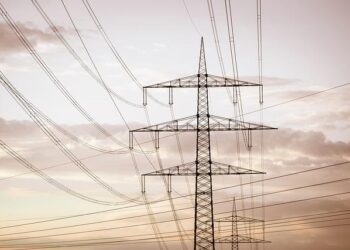The European Union faces a potential shift in its enlargement strategy as Hungary’s continued veto on Ukraine’s accession talks raises questions about the bloc’s approach to Eastern Partnership countries. According to recent statements, the EU may consider advancing Moldova’s membership application independently, signaling a possible decoupling of Moldova’s accession process from that of Ukraine. This development, reported by Radio Free Europe/Radio Liberty, underscores the complex political dynamics within the EU and highlights the challenges of maintaining unity amid ongoing regional tensions.
Hungary’s Veto Stalls Ukraine’s EU Accession While Moldova Advances
The European Union faces a diplomatic impasse as Hungary exercises its veto power, effectively placing Ukraine’s long-anticipated accession process on hold. Budapest’s objections center around concerns related to minority rights and political tensions, complicating the bloc’s efforts to present a united front in the east. Meanwhile, Moldova’s application gains momentum, with Brussels signaling a potential fast-track path that could see Chisinau inch closer to membership independent of Kyiv’s stalled progress.
Key implications of the current EU accession dynamics include:
- Hungary’s veto: Focuses on bilateral disputes, affecting broader EU enlargement strategies.
- Moldova’s advancement: Possibility of separate accession talks, setting a precedent for differentiated integration.
- Ukraine’s future: Uncertainty looms amid ongoing geopolitical tensions and reforms necessary for EU alignment.
| Country | Status | Next Milestone |
|---|---|---|
| Ukraine | Vetoed by Hungary | Resolution of bilateral issues |
| Moldova | Progressing | Commission Recommendation |
| Hungary | Veto Initiator | Negotiations with EU & Neighbors |
Implications of Divergent EU Membership Paths for Eastern Europe Stability
As Hungary continues to stall Ukraine’s European Union accession process, a complex web of geopolitical recalibrations is emerging in Eastern Europe. Moldova’s potential fast-tracking to EU membership, in contrast, signals a fundamental shift in the union’s approach to enlargement. This divergence not only reshapes diplomatic alliances but also introduces new vulnerabilities in regional stability. Countries like Ukraine, feeling sidelined, may perceive this as a sign of waning Western support, leaving them exposed to heightened external pressures and internal political fragmentation.
Key considerations in this evolving scenario include:
- Security dynamics: Moldova’s proximity to Transnistria and Russian influence complicates efforts to ensure lasting peace in the region.
- Economic impacts: Divergent membership timelines could exacerbate disparities between EU hopeful neighbors, intensifying migration and investment imbalances.
- Political ramifications: Frustrations with stalled integration processes risk empowering nationalist and pro-Russian factions, undermining democratic reform.
| Aspect | Moldova | Ukraine |
|---|---|---|
| EU Membership Progress | Potential fast-track | Delayed due to veto |
| Security Challenges | High (near Transnistria) | Very High (conflict zones) |
| Economic Support | Increased EU funds anticipated | Funding uncertain due to delays |
Calls for Enhanced Diplomatic Engagement to Resolve Hungary’s Standoff
Diplomatic efforts are intensifying as European Union officials and member states push for renewed dialogue aimed at overcoming the deadlock created by Hungary’s veto on the EU’s eastern enlargement package. Stakeholders emphasize that without swift resolution, Moldova’s accession process might proceed independently, potentially sidelining Ukraine and altering the geopolitical landscape in Eastern Europe. The increasing friction highlights the urgent need for compromise and coordination to maintain the EU’s unified approach toward its Eastern Partnership countries.
- EU representatives are calling for high-level meetings to directly address Budapest’s concerns and find common ground.
- Experts warn that a prolonged standoff could weaken the bloc’s credibility on enlargement and foreign policy cohesion.
- Member states urge increased transparency and communication to prevent further escalation and diplomatic isolation.
| Key Issue | Stakeholder Concern | Proposed Solution |
|---|---|---|
| Hungary’s Veto | Safeguarding national interests | Negotiated compromise via EU mediation |
| Moldova’s Membership | Advancing EU integration | Proceed with joint accession package |
| Ukraine’s Position | Risk of marginalization | Separate but coordinated accession discussions |
The Way Forward
As Hungary continues to block Ukraine’s EU accession talks, the prospect of Moldova advancing independently grows increasingly plausible. This development underscores the complex dynamics within the European Union’s enlargement process, highlighting both geopolitical tensions and the strategic calculations of member states. How the EU navigates this impasse will have significant implications not only for Ukraine and Moldova but for the broader stability and future of the region.
















